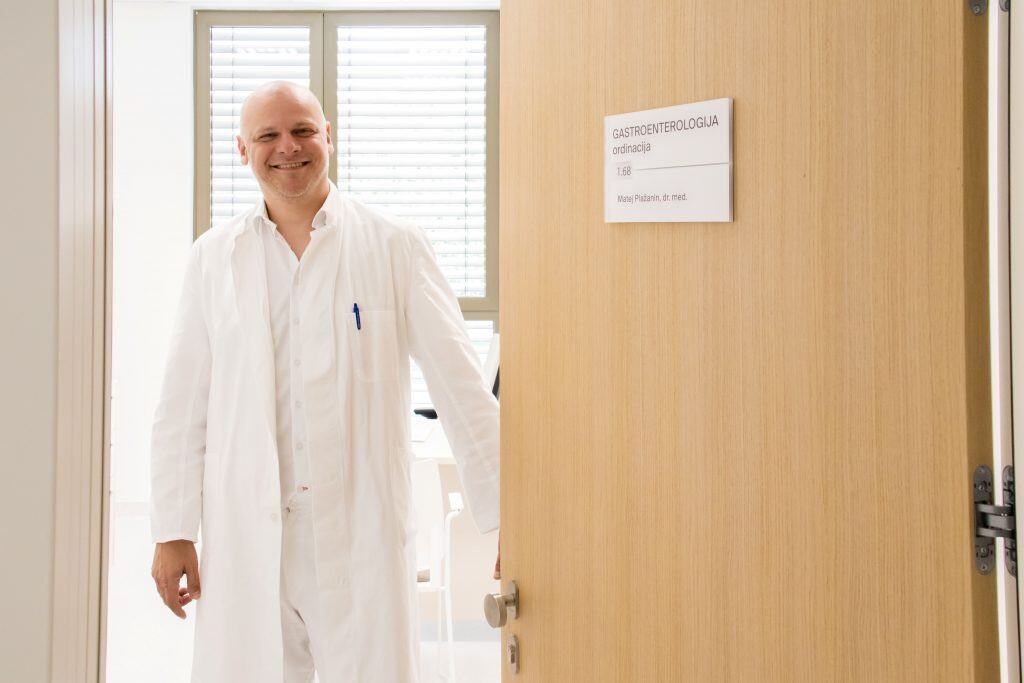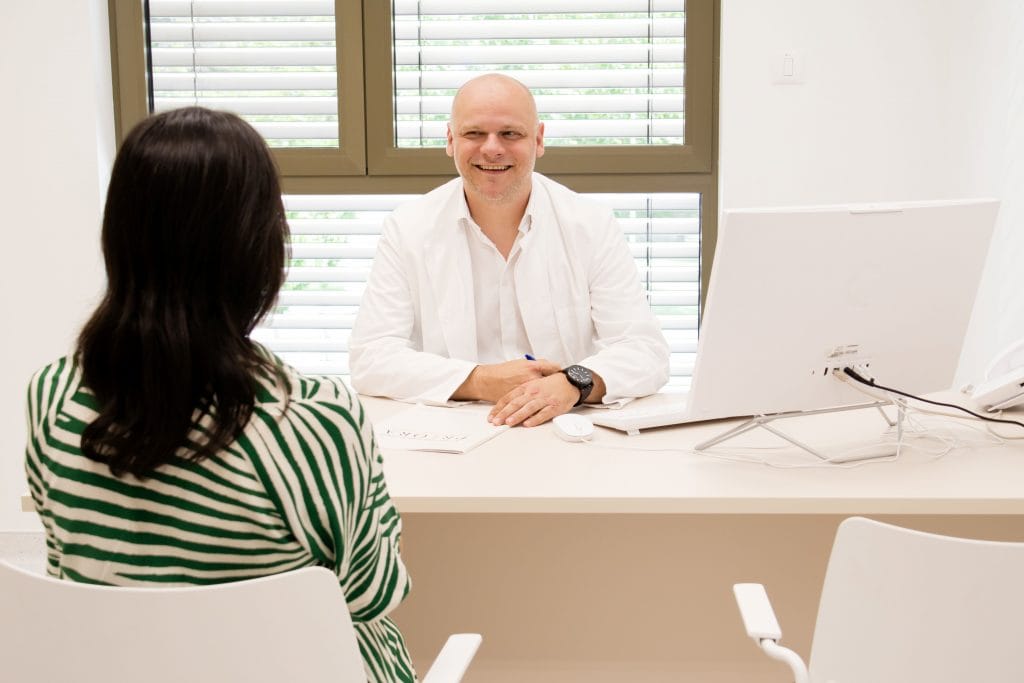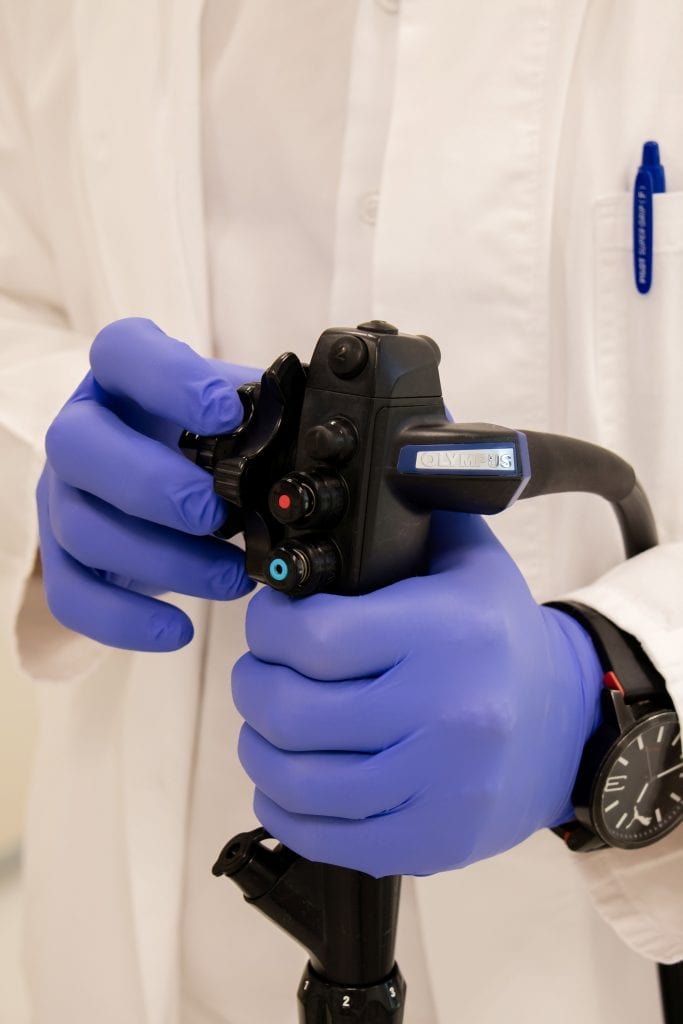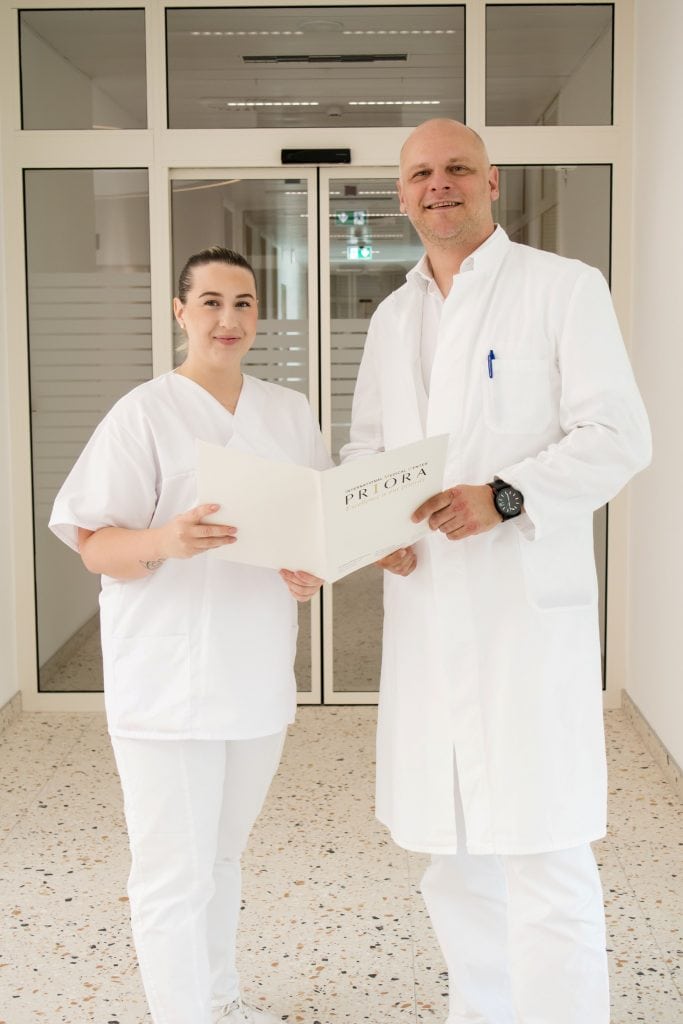Gastroenterology consultations, endoscopic procedures, and abdominal ultrasounds are now available at IMC Priora, and Dr. Matej Plažanin explains why they matter.
Colonoscopy as a key preventive procedure
Even though some medical exams may initially seem uncomfortable, there are specific procedures that everyone should undergo at a certain age—because they can save lives. One of the most important is, without a doubt, a colonoscopy. There’s no need for fear, especially now that medical advances have shortened the preparation time and made the procedure completely painless and stress-free thanks to the option of general anesthesia.
Such an opportunity is also offered by the Priora International Medical Center in Čepin, where a gastroenterology department was recently opened. The new department is headed by Dr. Matej Plažanin, a specialist in internal medicine and a subspecialist in gastroenterology.

Remove polyps, prevent cancer
Gastroenterology is a subspecialty of internal medicine that diagnoses, treats, and prevents digestive system diseases, including the esophagus, stomach, duodenum, small and large intestines, gallbladder, pancreas, and liver.
Gastroenterology is a subspecialty of internal medicine that diagnoses, treats, and prevents digestive system diseases, including the esophagus, stomach, duodenum, small and large intestines, gallbladder, pancreas, and liver.
Clinic consultations, endoscopic procedures (gastroscopy and colonoscopy), and abdominal ultrasound are now all available at Priora. The most significant interest is in colonoscopies performed under local or general anesthesia, depending on patient preference.
“Colonoscopy is extremely important for preventing serious diseases. It helps detect polyps—growths on the intestinal wall that are initially benign but can turn malignant over 10 to 20 years. We remove them to prevent cancer development,” says Dr. Plažanin.

When and why to het your first colonoscopy?
Changes in bowel habits, blood in stool, a positive stool test for hidden bleeding, unexplained weight loss, or anemia are indications for colonoscopy. But for our well-being, it’s best not to wait for symptoms and to have regular preventive checks of the digestive system.
It is recommended to have your first colonoscopy at age 45, followed by another every five to ten years. If there is a family history of colorectal cancer (parents or siblings), screening should start at age 40 or ten years earlier than the age when the relative was diagnosed. For example, if a father was diagnosed at 43, the child should have a colonoscopy by 33.
The same goes for gastroscopy, which allows doctors to examine the esophagus, stomach, and duodenum. If there is a family history of cancer, doctors recommend preventive gastroscopy starting at age 40. This procedure is also advised for younger people if symptoms of gastritis persist despite treatment or in the presence of alarm symptoms such as swallowing difficulties, unexplained weight loss, black stools, or anemia. Regular gastroscopy is also recommended for patients with GERD (gastroesophageal reflux disease) due to the risk of esophageal damage.
How to prepare for a colonoscopy?
Gastroscopy requires little preparation aside from fasting, but colonoscopy involves a specific prep process. Fortunately, modern medicine has made this easier.
“Patients receive detailed written instructions from their doctor. Two standard bowel prep solutions are available in pharmacies and are taken the day before the procedure. A light diet is also recommended the day before. Previously, patients had to drink liters of bitter saline solution—but that is no longer necessary,” explains Dr. Plažanin.
Modern life has brought about modern diseases like celiac disease and inflammatory bowel diseases such as Crohn’s disease and ulcerative colitis.
“Higher living standards come with a greater prevalence of these diseases, though genetics also play a role. Studies show that children of African immigrants to Europe have the same risk of developing Crohn’s or ulcerative colitis as the local population. Environmental factors, diet, and stress are major contributors,” he notes.
These diseases significantly affect quality of life and are increasingly seen in young people even in children.

What can we do to protect digestive health?
“A healthy diet, managing stress, and staying physically active are key to protecting digestive health. Preventive screenings are just as important. The earlier we detect inflammatory diseases or cancer, the more successful the treatment. If we find colon cancer when it’s still confined to a polyp, the cure rate can be up to 100%,” concludes Dr. Plažanin.
